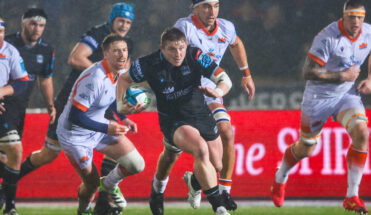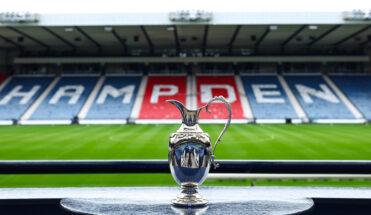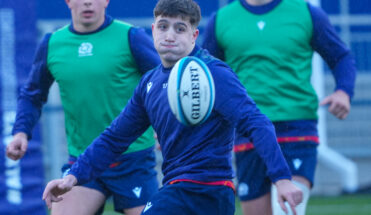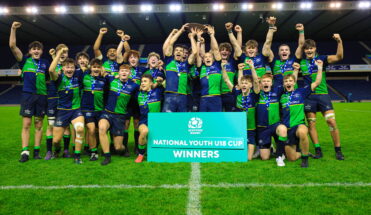Made by rugby, ready for life
Nine months ago, Scottish Rugby launched its comprehensive player support programme ‘Rugby for Life’. The initiative is designed to work with players at whatever age, or stage, of their career.
Ben Atiga, Scottish Rugby’s International Settlement Advisor, has been closely involved in developing and delivering the programme. As a former professional rugby player (with the All Blacks, Edinburgh, Blues and Highlanders in Super Rugby), he is well placed to understand the challenges that Scotland’s pro players face.
“Rugby for Life is holistic – it’s about supporting the whole person rather than just the player,” he said.
Atiga explains that when he introduced players to the programme, they spoke about the players’ priorities and what steps they were taking to put a plan in place for life after rugby.
“I asked them how real their back-up plans are,’ he said. “So if their rugby career ended tomorrow, how confident were they in executing that plan? That was a hard question for some of the players to answer.”
The Rugby for Life programme was launched in March 2018 after 18 months of research and development and it has drawn on advice and expertise from a cross section of mental health charities, professional organisations and academic experts. It recently won the Strategic People Project of 2018 at the HR Network Scotland Awards.
The initiative aims to take a proactive approach to player support through education, awareness and hands-on experience to enable players to develop their mental health resilience and help in achieving a healthy sport/life balance as they transition into, or out of, professional rugby. Partners, including BT and RBS, have provided opportunities for Academy and senior players to experience a range of work opportunities.
Atiga points out that many of Scotland’s pro players will have started their careers at a young age and they are fortunate enough to have a job that means everything to them. He points out that when your first job is your dream job, it can be difficult to know what to do next.
“Trying to find something that has the highs of running out there on a Saturday in front of 67,000 people is really difficult,” he said.
“But I think it’s important for our players to realise it is possible to find something other than rugby that’s meaningful and that you’ll get out of bed for on a Monday.
That’s really the message we want to send with the programme – find something that you really enjoy when you come out.”
Another question Atiga asks the players is who they think they are when they’re not on the pitch. It’s a question former Scotland captain Al Kellock started asking himself several years before he retired from pro rugby.
“I did various different things in the five years or so before I retired,” he said. “The catalyst for me came when I had my first kid – I realised that I wasn’t going to be playing rugby forever.”
Kellock said that he did a variety of work placements while he was playing, getting experience in different businesses.
“We’re really lucky as players having opportunities to get in and experience different businesses, particularly with our partners and sponsors,” he said.
Kellock is now a Business Development Manager with Scottish Rugby. He says that a lot of his generation of rugby players didn’t retire with a clear plan of what would come next, but in his current role he’s trying to make sure than every player has a clear path ahead of them.
“We have brilliant links with businesses – we’ve been able to place players in many different areas,” he said. “Placements add great depth to any partnership and ultimately benefit both the business and the player.
I firmly believe that these experiences outside of rugby help our players perform on the pitch.”
Tags
Related news

‘World-class’ Schoeman pens long-term extension

Teams Confirmed for 1872 Cup Opener

Match Preview Glasgow Warriors v Edinburgh Rugby

Ventisei to captain Scotland U20 in friendly against Wales

Fagerson signs new multi-year deal with Glasgow Warriors

Aberdeen Grammar Rugby secure £250,000 towards new 3G pitch

Van der Merwe Commits to the Capital

Youth Cup Finals take centre stage on Sunday

Cougars to host reigning champions Stirling in final






